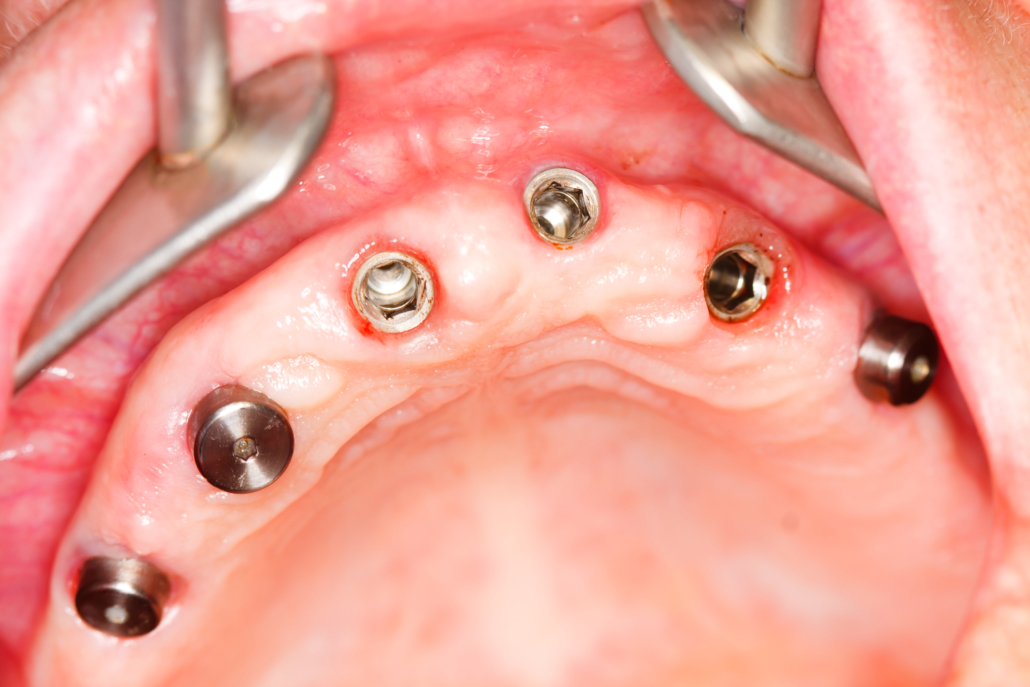The rehabilitation of fallen teeth through implantology has become the first choice by patients thanks to an increasingly less invasive dental technique and with very high success rates; however there are still many external factors that can affect implant failure, including penicillin allergy.
The possible causes of an implant failure
The success of dental implants and their survival over time are clinically documented with percentages higher than 90%. In the rare cases where an implant failure occurs it is due to:
- lack of osseointegration
- infection or implant instability
- excessive or incorrect mechanical forces
To increase the predictability or survival success of the dental implant and avoid complications, it is common practice for dentists to prescribe a penicillin-based drug treatment before and after implant surgery.
Penicillin allergy and dental implant complications
In patients with optimal health conditions, the prescription of penicillin increases the implant success rate precisely because it avoids infections both in the pre-operative phase and in the phase following the insertion of the implants.
In patients with a certain diagnosis of penicillin allergy, a potential implant failure may instead occur, but if the allergy is known and therefore present in the medical record, the dentist will be able to evaluate the administration of alternative antibiotics to guarantee the absence of infections before and after implantology.
For this reason, the planning phase of the implant surgery and the patient’s anamnesis are crucial for the success of the insertion of dental implants.
Alternative antibiotics for those with a penicillin allergy
When a patient reports a penicillin allergy, alternative antibiotics may be prescribed, including:
- clindamycin
- lincosamide antibiotics
- azithromycin
However, although many patients report being allergic to penicillin, true penicillin allergy has been observed at a much lower rate than reported. More than 90% of patients who reported penicillin allergies were proven wrong by specific allergy tests.
In a study published in Clinical Implant Dentistry and Related Research of March 2022, the risk of implant failure associated with the patient with known penicillin allergy and which antibiotic had been administered instead of penicillin were evaluated.
The study was conducted through the review of case reports of patients receiving dental implants with at least 1 year of follow-up data.
Penicillin allergic patients and implant failures
The failure rate in non-penicillin allergic patients was found to be 8.4%, while the failure rate in allergic patients was found to be significantly higher, with a percentage equal to 17.1%.
Clindamycin and azithromycin were the main antibiotics prescribed to those reporting a penicillin allergy, and both showed high failure rates. Regarding the timing of implant failure, most implant failures occurred before 6 months among those in the allergic group and after 12 months in the non-allergic group.
It can be concluded that there is a lower implant failure rate in patients taking amoxicillin in preparation for surgery than in patients taking other antibiotics. There is a significant increase in early implant failure in patients with penicillin allergy.
Routine testing of those reporting a penicillin allergy is always a good idea to identify truly allergic individuals, as it may be possible to reduce the rate of implant failure by prescribing amoxicillin to those without a true allergy.


















